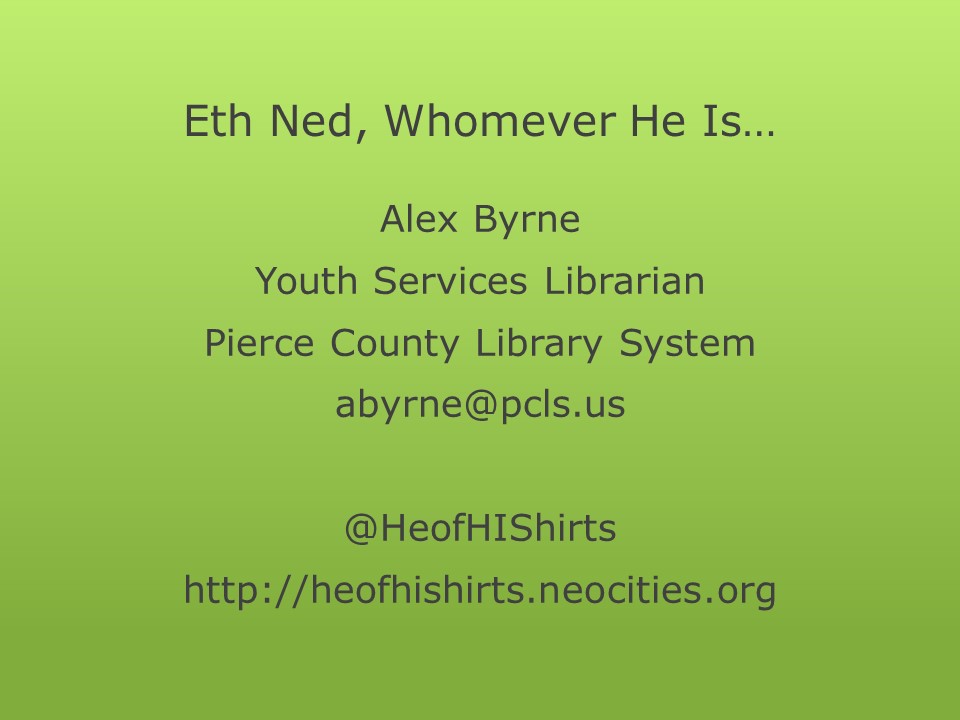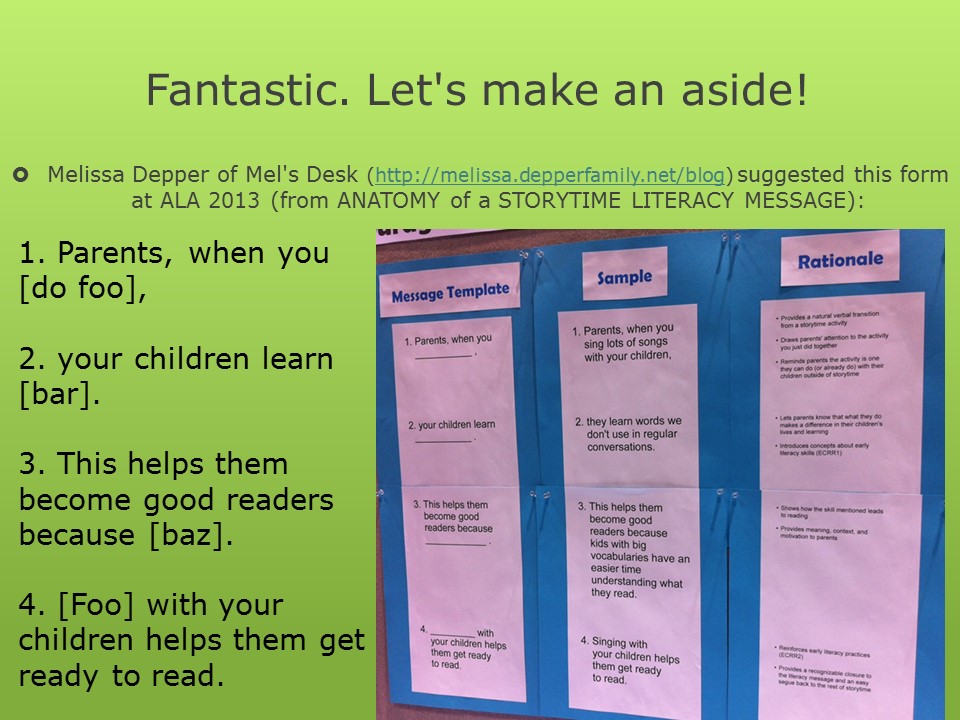
Now that we have an idea of what makes a good aside, it's time to get some practice building them. Melissa Depper, of the blog Mel's Desk, provided this method at an American Library Associaion poster session and talk in 2013 called Anatomy of a Storytime Literacy Message:
- Parents, when you [do foo],
- your children learn [bar].
- This helps them become good readers because [baz].
- [foo] with your chlldren helps them get ready to read.
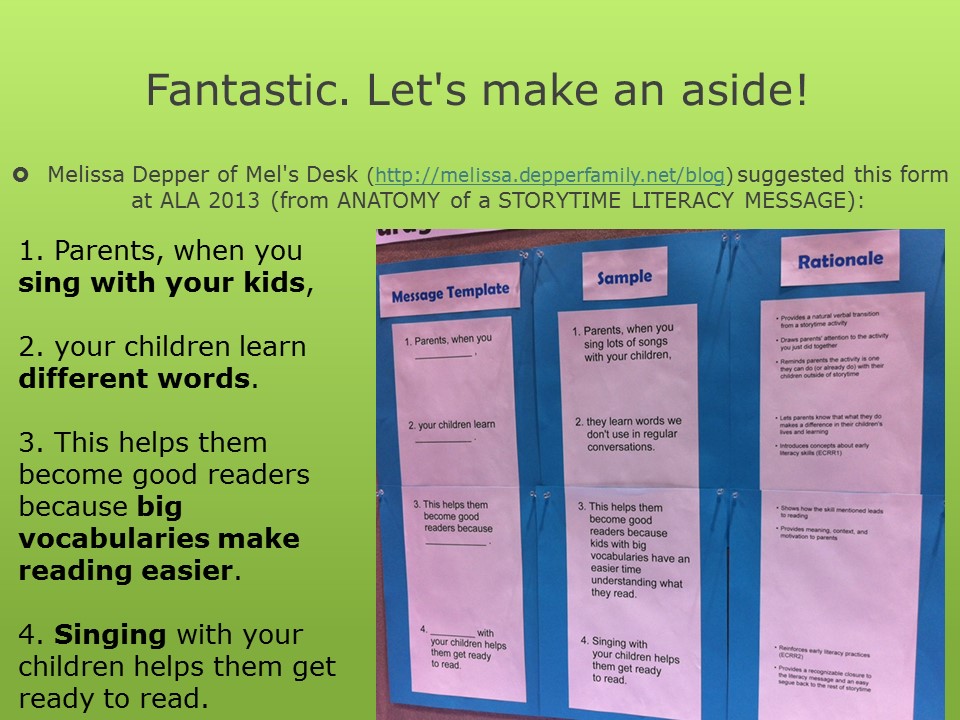
Here's an example:
Parents, when you sing with your kids, your children learn different words. This helps them become good readers because big vocabularies make reading easier. Singing with your kids helps them get ready to read.
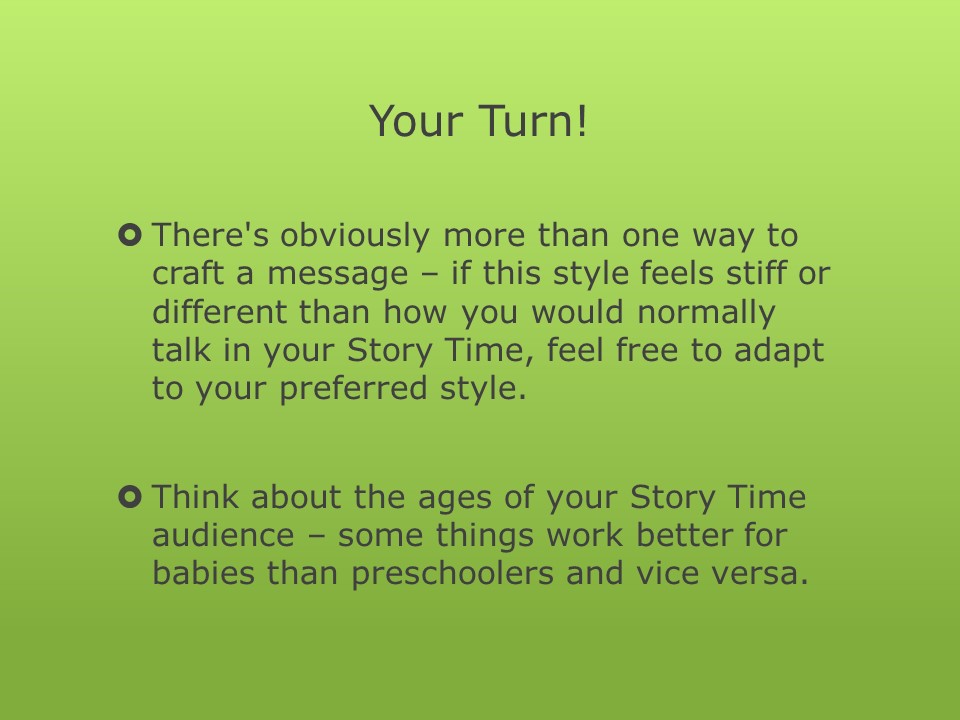
This is one way of constructing a message - if that works with your style, go ahead and use it. If it doesn't work with your stlye, don't use it. Keep in mind your audience and their developmental level when choosing the asides you want to construct.
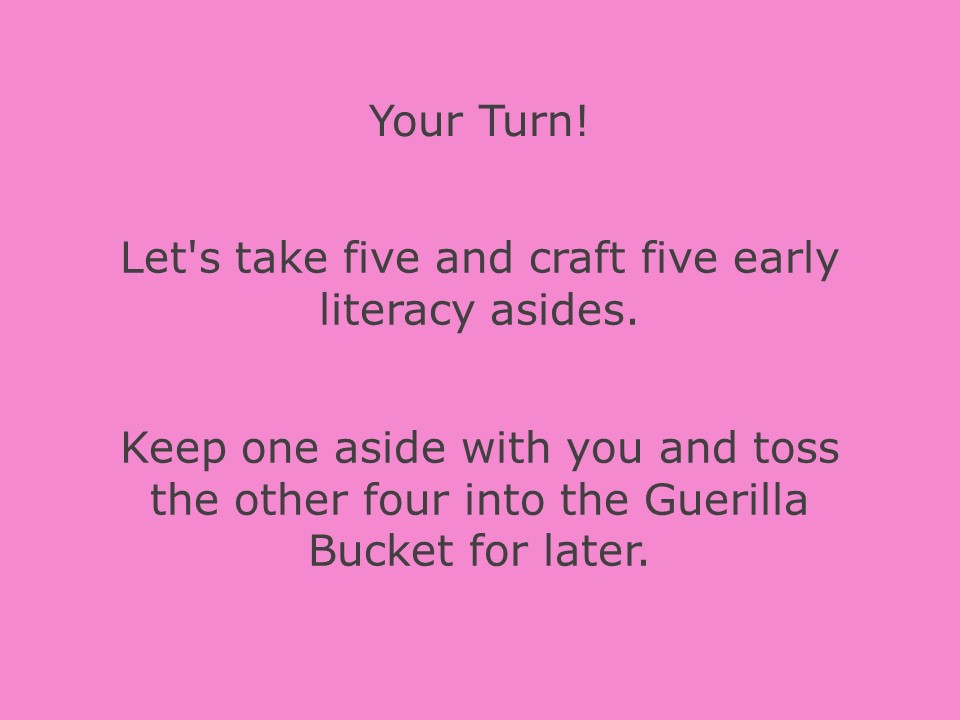
Okay, time for some practice. Using this method or some other one, bulid some early literacy asides. (If you're doing this at a staff meeting or big grouping, throw your constructions into a big bag and shake it all up when everyone has contributed a few asides to the bag.)
This Sounds Unnatural
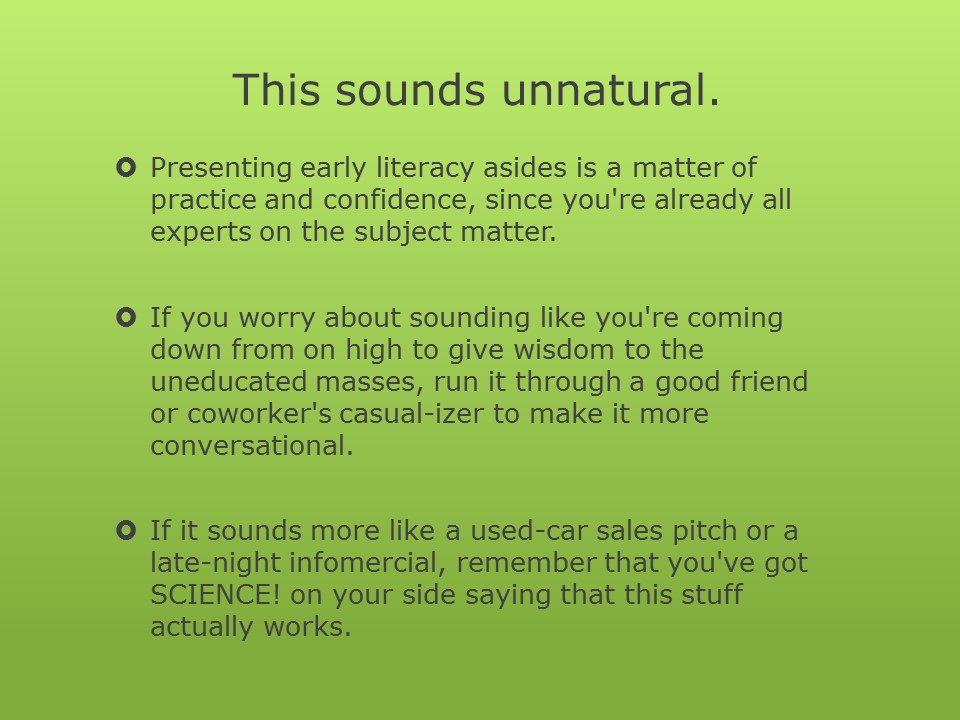
How did you do? Did building some asides come naturally, or was it some work to get everything together the way you wanted to?
Library workers sometimes feel like giving advice sounds like they're experts (which you are) delivering the Word of Law from On High to groups and want to sound less pretentious or pompous. Alternately, some library workers feel like their tips are the equivalent of a used car or late-night informercial pitch.
In either case, practice helps smooth these things out, but there's also coworkers that can help calibrate the delivery of the message so that it has the right balance of authority and casual-ness. And remember, there's SCIENCE! backing all of these things, so that will hopefully help it feel less like an infomercial.
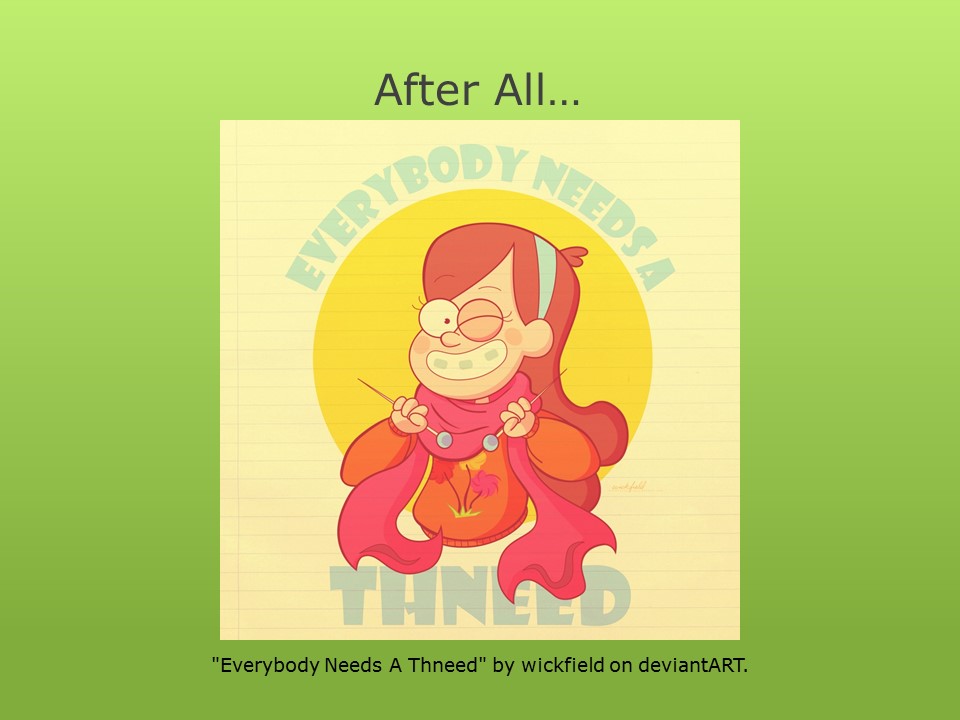
After all, everyone needs what you're talking about, and they're there to get it from you.
Practice, Practice
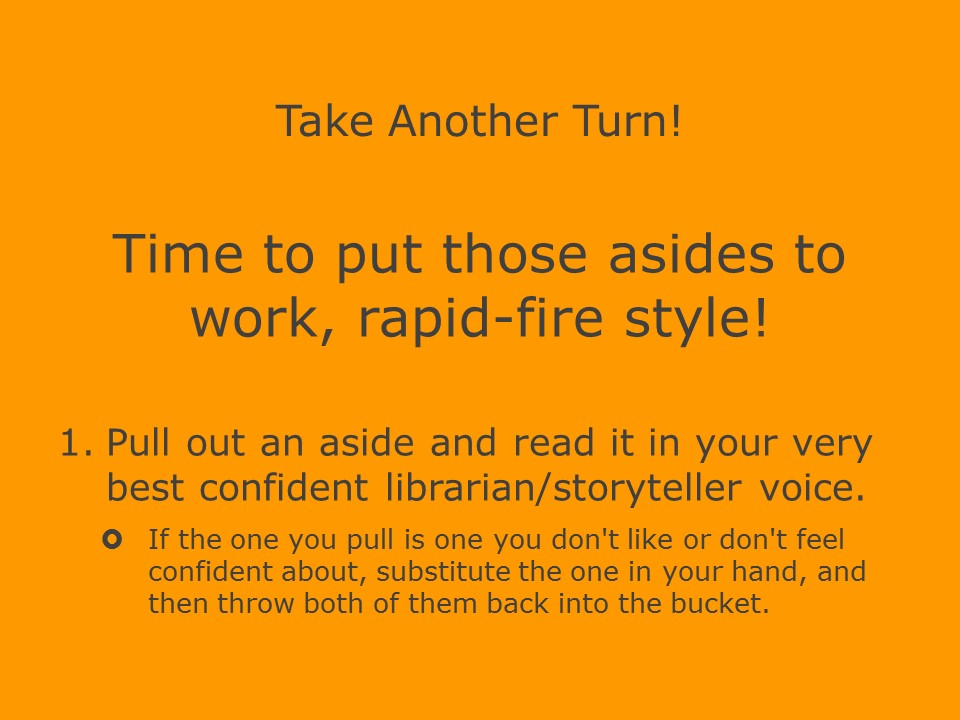
Great! Now that you've created them, it's time to practice some delivery. Read your asides in your very best librarian voice. (If you've got a big bag o' asides, grab one or more from the bag and read them aloud in your best voice.)
